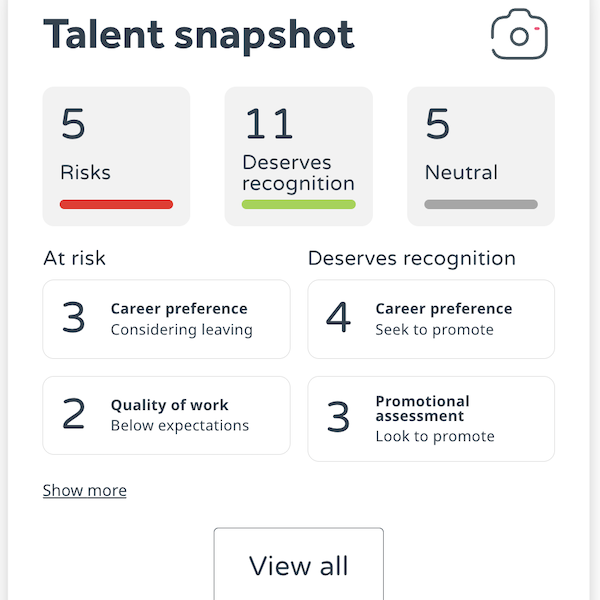Keeping employees engaged in the post-covid era is one of the biggest challenges employers face, and without understanding why employee engagement is important many organisations will continue to struggle.
We know that staff who are engaged with their work are happier, more motivated, less likely to leave, more aligned with the vision and values of the company, and more willing to go above and beyond – a winning combination for business success.
But employee engagement goes much deeper than that.
Here’s why employee engagement is much more important now than ever before.
Rekindling the worker-employer relationship
The relationships between employers and employees changed as lockdowns forced many to work from home during the pandemic.
‘Zooming’ into bedrooms and living rooms, getting to know the familiar faces of dogs, cats and kids quickly became the norm. Leaders, managers and colleagues found themselves strangely closer to workers’ personal lives than they ever had before.
But that connection, it turns out, hasn’t gone far enough. It was arguably a superficial one. Feelings of social isolation and disconnection are now commonplace amongst employees. A survey by Total Jobs found almost half of UK workers (46%) have experienced loneliness during lockdowns and as many as 70% of this cohort say the loneliness has affected their wellbeing.
Working relationships need some intense attention to rekindle them. Good working relationships make work more enjoyable. And the happier employees are, the more productive they are.
The honeymoon period of remote work is over
Despite the enormous challenges, staff have genuinely surprised employers with their resilience and productivity. But research suggests the honeymoon period of remote work is coming to an end. In fact, burn-out has skyrocketed since the pandemic. A study of US workers found a staggering 95% of employees are considering quitting their jobs, with 33% of those citing burn-out as the reason.
Reiterated in a survey by the Harvard Business Review (HBR) of nearly 1,500 people from 46 countries, the vast majority of employees are struggling with general and workplace wellbeing. A staggering 85% reported a decline in general wellbeing with over half of respondents also reporting mental health declines. Respondents also noted increased job demands and growing disengagement with their work.
Rekindling relationships in the workplace and putting the right support in place for employees will be vital for future business success.
Some workers are returning to offices, some will continue to work from home. Many are testing the new hybrid model. New strategies to keep employees consistently engaged are essential if businesses are to make a strong comeback. Employee engagement needs a renewed focus right now. Going back to old ways, simply won’t be effective. The nature of work has changed. People are feeling more stressed.
Get this transition wrong and you could find yourself with a talent shortage.
Cracking the whip is a poor productivity lever
While any business can be financially successful, that doesn’t necessarily make them a good place to work.
Focused purely on output, some dictatorial bosses think that cracking the whip (metaphorically) is the only way to get people to knuckle down and work harder. It’s a fact, this kind of management style has quite the opposite impact.
Under this kind of regime, productivity is never at its optimum. Employees are hardly motivated! Many will, in fact, be feeling disgruntled. Even the handful of conscientious employees who do churn out the work, won’t become true brand ambassadors. Cracking the whip has a negative effect on a business in so many ways – poor staff retention, difficulty recruiting talent (poor reviews), low morale, lower productivity and so on.
The fact is there are many businesses like this that are meeting targets and making a profit – but think how much better and more profitable they could be if their employees were engaged and more productive!
The importance of employee engagement lies in wellbeing at work
Still some businesses aren’t clear on what employee engagement means and how it ties into wellbeing in the workplace.
People working in businesses with a poor culture and being watched over by ineffective management feel resentful, slack off and have no desire to go above and beyond. Clock watching all day long, employees can’t wait to log off or go home. It’s a soulless routine that can have serious mental health consequences.
Think about it. Walking into an office or joining a Zoom call where employees aren’t engaged is an energy-sapping experience. The heaviness and unhappiness in the air (or in the airwaves) is palpable.
This kind of work environment breeds unhappiness and can have a devastating effect on health. At best, such a poor workplace culture demotivates. At its worst, it demotivates AND impacts mental and even physical health.
A study by Westfield Health has uncovered the impact of the Covid-19 lockdowns and other restrictions on the nation’s mental health. It’s not good news. And it cost UK businesses a staggering £14bn last year.
Poor culture doesn’t pay.
Now there is an opportunity for businesses to get employee engagement right. It’s time for a reset.
The question business owners must always ask themselves – is this a company I can feel proud of?
Build back connection with CSR
Covid-19 plunged the world into unsettling times. It has left many employees feeling isolated and misaligned. As new working arrangements come into play, rekindling connections in the workplace will be critical to keep employees motivated as they navigate yet another bout of change.
The global pandemic has caused everyone to pause and think about what is important in life, and Corporate Social Responsibility (CSR) has a valuable role to play.
Now, more than ever, people want to buy from, and work for, employers who behave in socially responsible ways. CSR will be a vital engagement tool as employers resell their vision to employees.
It goes beyond engagement.
Hannah Nokes, co-founder of Magnify Impact, a business helping companies create social responsibility strategies, believes every company can create shared value in the world. In an article on purposeful leadership, Nokes says, “Brands that are responding with empathy today are positioned to thrive.”
The fact is employees are now much more likely to stay with a company that has some form of ethics baked into its brand. Thanks to social media, consumers now also have a lot of clout. Companies that are seen as unethical or uncaring will find themselves being boycotted.
Companies are spending increasing amounts of budget and time to position themselves as socially responsible organisations. Why? Cynics would say it’s good for brand image; but it’s increasingly recognised as a key driver for employee engagement. As it happens, it’s also good for the world.
Find out why employee engagement is important in your organisation
Employee engagement has never been so important. Why not make a start and find out how your employees are with 10 free users?
WeThrive helps leaders understand the causes of stress and anxiety in the workplace and provides the tools to infuse employees with motivation and drive. Adopt a people-first approach and see your business thrive, not just survive.



